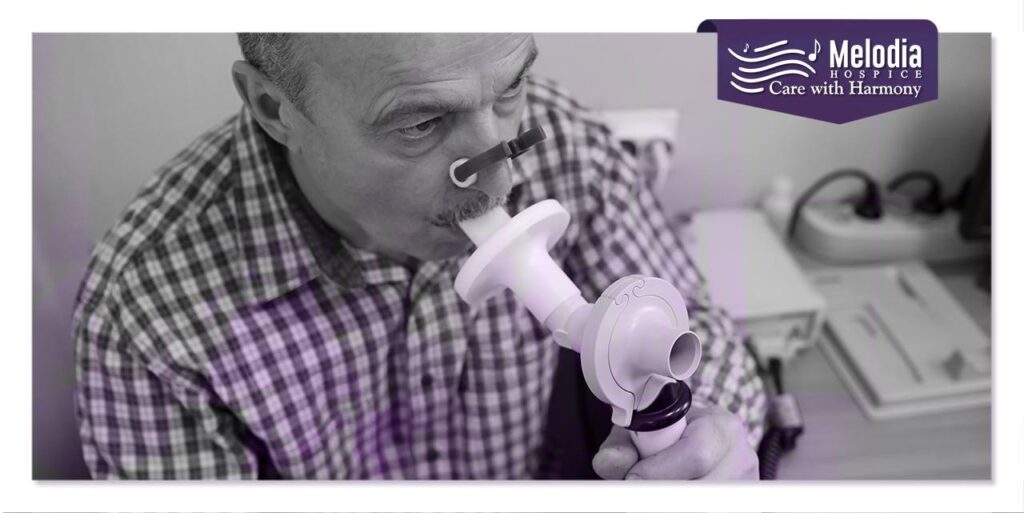In dementia, the loss of cognitive functioning (thinking, remembering, and reasoning) has progressed to the point where it is interfering with a person’s everyday activities and activities of daily living. The personality of people with dementia can change because they are unable to control their emotions. The intensity of dementia varies from the mildest stage, when it is just beginning to interfere with a person’s ability to function, to the most severe level, when the individual must fully rely on others to do even the most basic of daily activities.
Dementia is not a normal component of ageing, despite the fact that it occurs more frequently among the elderly (about a third of those 85 and older are thought to have some form of dementia). Many people live well into their 90s and beyond without showing any evidence of cognitive impairment.
If the brain is deprived of oxygen, whether as a result of a physical obstruction or as a result of prolonged exposure to an environment with insufficient oxygen, it can result in some types of dementia.
When the body is deprived of oxygen, this condition is known as hypoxia. It can affect the entire body or only a specific region of the body. Anoxia is a medical term that refers to a complete lack of oxygen in the bloodstream. When cerebral hypoxia is generated by other forms of hypoxia, it can result in brain damage, such as brain cell death and various forms of mental degeneration, among other things.
The presence of unusually low oxygen levels in the brain (cerebral hypoxia), according to research, is strongly associated with the start of Alzheimer’s disease. Currently available research has not been able to determine the exact mechanisms that are responsible for the association, but it has been found that a lower blood flow has a tendency to raise the protein beta-amyloid. The buildup of beta-amyloid in the brain is one of the most distinguishing symptoms of Alzheimer’s disease, and it is also one of the most common.
The use of home oxygen therapy is recommended for persons suffering from a variety of medical illnesses, including lung and heart ailments such as Chronic Obstructive Pulmonary Disease (COPD) and heart failure. Patients with dementia who have suffered cognitive and functional impairments may find it challenging to regulate their oxygen consumption. Hypoxia can aggravate confusion and worsen behavioral symptoms in people who already have them. Patients suffering from cognitive impairment frequently have tremendous difficulties learning and remembering how to appropriately operate unfamiliar oxygen equipment. The mortality and readmission rates among this group of patients are extremely high. A large amount of time is spent dealing with symptoms, which negatively impacts the quality of life and health status of patients and caregivers.
The treatment of older individuals with dementia who also have medical co-morbidities must be meticulous in order to minimize behavioral effects and increase quality of life for everybody involved. The clinical management of elderly patients differs from that of the younger population, and health-care professionals must adapt their management practices to meet the unique demands of this demographic.
Oxygen deprivation-induced dementia is rarely curable since it usually results from some sort of persistent brain damage, which cannot be reversed. If the oxygen levels of a person who is experiencing low oxygen levels are restored to normal levels as soon as possible, the harm may be mild or even reversible. However, if the damage is long-lasting and results in the start of dementia, there is little that can be done other than to manage the symptoms of the disease.
The long-term damage caused by oxygen deprivation, regardless of how it occurs, will put you at risk for developing dementia. You can most likely avoid developing this sort of dementia if you make certain that you are always in a comfortable breathing environment.
Diagnosis Of Dementia

In order to diagnose dementia, clinicians must first determine whether or not the patient has an underlying, potentially curable illness that is associated with cognitive impairment. Blood pressure and other vital signs can be measured during a physical exam, and laboratory tests of blood and other fluids can be performed to determine the levels of various chemicals, hormones, and vitamins in the blood and other fluids. These tests can help identify or rule out possible causes of symptoms.
When reviewing a person’s medical and family history, it is possible to gain valuable insight about their likelihood of developing dementia. Typical queries can include whether or not dementia runs in the family, how and when symptoms first appeared, changes in behavior and personality, and whether or not the person is taking particular medications that could cause or exacerbate symptoms.
- Cognitive And Neurological Tests. These examinations are used to evaluate both mental and physical functioning. Memory, problem-solving, language abilities, and numeracy skills, as well as balance, sensory response, and reflexes, are all tested as part of this process.
- Brain Scans. For example, these tests can help identify strokes, malignancies and other conditions that may be causing dementia. Brain scans can also detect changes in the structure and function of the brain.
- Psychiatric Evaluation. During this evaluation, it will be possible to identify whether depression or another mental health problem is the cause or a contributing factor to the symptoms of a person.
- Genetic Tests. Some forms of dementia are caused by a person’s genetic makeup. In these situations, a genetic test can be used to determine whether or not a person is at risk for dementia. Talking with a genetic counsellor before and after getting tested, as well as with family members and your doctor, is extremely important.
- Blood Tests. For the first time, physicians can now order a blood test to evaluate levels of beta-amyloid, a protein that accumulates abnormally in the brains of persons suffering from Alzheimer’s disease. Several other blood tests are in the process of being developed. The availability of these diagnostic tests for Alzheimer’s disease and related dementias, on the other hand, is still restricted.
When people are experiencing changes in their thinking, movement, or behavior, it is common for them to seek medical attention from their primary care physician. Neurologists, on the other hand, are specialists who specialize in illnesses of the brain and neurological system, and they are frequently consulted when diagnosing dementia. Neuropsychologists, geriatric psychiatrists, and geriatricians may all be able to diagnose dementia in the elderly population. Your primary care physician can assist you in locating a specialist.
If you are unable to locate a specialist in your area, you should contact the neurology department of the nearest medical school for a reference. In addition, a medical school hospital may feature a dementia clinic where experts can provide expert evaluation.
Treatment Of Dementia

Hyperbaric oxygen therapy (HBOT), an established medical treatment that involves breathing pure oxygen in a pressurized environment, could provide a new means to slow the progression, or even prevent the development, of Dementia. Researchers at Tel Aviv University and Shamir Medical Center have found this out in a new study.
Atmospheric pressure in the chamber must be substantially greater than normal for HBOT to work, and patients must inhale 100% oxygen while sitting in the chamber. Many medical issues can be treated safely with this method of therapy, which has been shown to repair damaged brain tissue and stimulate new growth of brain blood vessels and nerve cells.
A specific HBOT regimen developed resulted in a 16-23 percent improvement in cerebral blood flow in aged individuals, easing vascular dysfunction, reducing the volume of pre-existing amyloid plaques, and preventing the production of new amyloid plaques in the brain.
With hyperbaric oxygen therapy, 100 percent oxygen is delivered under enhanced air pressure. This lets oxygen to flow freely throughout the body’s blood, cells, and tissues. Because Alzheimer’s disease is thought to be caused by anomalies in the brain, experts believe that increasing the amount of oxygen delivered to the brain will have a beneficial effect. That was the conclusion of a study released in 2018. HBOT sessions were administered to transgenic mice, which are mice that have been designed to develop Alzheimer’s disease. They were subjected to daily HBOT sessions for two weeks. The researchers’ findings indicate that HBOT treatments can help to minimize oxygen deprivation and inflammation in the brain. The presence of amyloid plaques is reduced, and tau tangles are reduced as a result of the treatment. The researchers saw apparent alterations in behavioral symptoms, as well as improvements in these symptoms.
Hyperbaric oxygen treatment is the process of breathing pure oxygen while enclosed in a pressurized chamber. The air pressure in the chamber is boosted by two to three times over that of the surrounding air outside the chamber. Treatment for decompression sickness (a condition that can occur in scuba divers), carbon monoxide poisoning, and certain types of stroke or brain injury are all prominent uses for nitrous oxide. Increased oxygenation of tissues with low oxygen levels is achieved by the use of this technique (hypoxia). Additionally, it has the potential to enhance blood flow to the brain, which would help to nourish brain cells that are typically deprived of blood and oxygen in Alzheimer’s disease.
Over the course of four weeks, the scientists treated 15 six-month-old mice (equivalent to around 30 human years) with hyperbaric oxygen therapy for one hour each day, five days a week. Comparing the therapy group to a control group of mice who did not get hyperbaric oxygen treatment, the researchers found that the therapy not only reduced the quantity and size of plaques in the brains of the mice, but it also inhibited the production of new plaques.
People suffering from Alzheimer’s disease have diminished blood flow to their brains. This study found that mice who received oxygen therapy had improved blood flow to their brains, which aids in the removal of plaques from the brain and the reduction of inflammation, both of which are hallmarks of Alzheimer’s disease.
By increasing blood flow to the brain, lowering plaque levels, and decreasing hypoxia, the mice who received daily oxygen therapy began to demonstrate improvements in their cognitive abilities, such as spatial recognition memory and contextual memory – the ability to recall emotional, social, spatial, and temporal circumstances associated with an event.
Many of patients are concerned about developing dementia, and the infrastructure in place to help them is at best patchwork. Also, the ethics of diagnosing persons who may not have a serious condition has been called into question. So, absolutely, we need to help those with dementia get the support they need as quickly as possible. People must not be over-diagnosed and given too many medications in order to achieve this goal.
You can reach Melodia Care at any time of day or night by contacting us through our 24/7 online customer support chat or by calling 1-888 635-6347 (MELODI-7).










